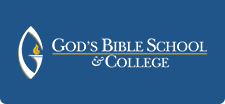New Testament Introduction
Course code: BITH 501
New Testament Introduction introduces the literature of the New Testament in its socio-historical, literary, and canonical contexts, methods of New Testament study, and critical issues in New Testament formation and interpretation.
Attention will be given to analysis of critical views.
Intended Outcomes
Students will know…
- The key elements of the background, authorship, chronology, and other introduction issues for the New Testament books
- The content of each chapter in the New Testament
- Critical methods of New Testament study
- The socio-historical contexts of the New Testament writings
Students will appreciate…
- The role that issues of New Testament introduction play in our interpretation of Scripture
- The responsibility we have to accurately interpret God’s Word and conform our lives to it
Students will gain confidence in the authority and reliability of the New Testament.
Students will be able to…
- Engage the major questions of NT study and scholarship, including the nature of Scripture
- More accurately interpret and apply the New Testament in light of its socio-historical context
- Identify and critique unbelieving assumptions and conclusions in the study of the New Testament
Assignment Overview
- Video lectures (both pre-recorded and synchronous real-time interaction via Google Hangouts) will supplement the class textbooks.
- Students will interact with the readings and video lectures in weekly assignments.
- The final project for the class is a 2500-3000 word research paper on a New Testament critical issue. The paper will explain how a specific NT text (or multiple texts) is clarified by a proper understanding of the critical issue.
Professor
Dr. Stephen Smith
Textbooks
- The Cradle, the Cross, and the Crown: An Introduction to the New Testament by Andreas Köstenberger, L. Scott Kellum and Charles L. Quarles.
- The Historical Reliability of the New Testament: Countering the Challenges to Evangelical Christian Beliefs by Craig Blomberg.


